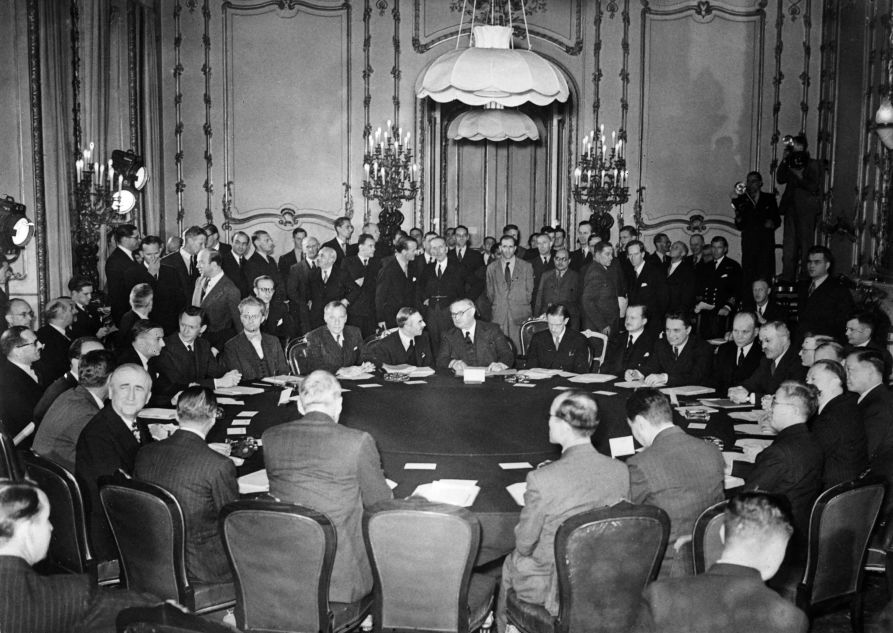For a long time, the belief that the credit for creating the judicial base for the Nuremberg Trials belongs to the United States was prevalent in the Western historiography related to said trials. Lately, however, Western historians started talking about the previous assessment being erroneous, with Soviet professor and legal scholar Aron Trainin, the man who developed the basic legal formulas for the trials, becoming the subject of several studies.
"Most English-language accounts describe Soviet participation in Nuremberg as ‘the Achilles’ heel’ of the trials: regrettable but unavoidable, a Faustian bargain that the US and Britain made in order to bring closure to the war and bring the Nazis to justice", American researcher Francine Hirsch writes in her work, The Soviets at Nuremberg: International Law, Propaganda, and the Making of the Postwar Order.
"Popular works that have shaped conventional wisdom about the trials give little attention to the substantive role that the Soviets had in all aspects of the IMT (International Military Tribunal)", she wrote.
What aspects is the historian talking about? The Soviet Union turned out to be the only one of the Allies, which, from the beginning until the end, stood for the concept of an international court – this much is obvious. The Soviets also deserve credit for much of the judicial basis of the trials.

In 1937, Aron Trainin, a Moscow State University professor of criminal law who had graduated from the then-Moscow University before the revolutions of 1917, published a book called “The Defence of Peace and Criminal Law”. He criticised the League of Nations for its refusal to recognise the initiation of aggressive war as a crime, and for missing an opportunity to establish an international court for punishing aggressors in 1920. Postulating the necessity of creating a “criminal code for the defence of peace”, Trainin lamented that, at that time, the existing international law “punishes illegal rabbit hunting more severely than organising the military extermination of people”.
“The idea of a “crime against peace,” that is, of treating war itself as a punishable criminal act, had been raised in international conferences”, Hirsch remarks. “But Trainin gave the concept its definitive formulation, which would later serve as a basis for the Nuremberg Charter.”
Trainin's book was translated into English, French and German, and attracted the attention of political circles. In October 1944, the book was discussed during a session of the United Nations War Crimes Commission; in Decembe ofr that year, it was studied at the US Department of State and the Department of Defense. Trainin's work even made its way to the desk of Robert Jackson, then-Associate Justice of the US of the US Supreme Court, who was appointed Chief United States Prosecutor at the Nuremberg trials; and David Maxwell-Fyfe, who headed the British delegation at the London Conference; he described the book as a “godsend”.
Trainin himself would head to the London Conference as part of the Soviet delegation, later to serve as an adviser to the Soviet prosecution in Nuremberg.
In London, the United States, USSR, France and Britain adopted the definition of “crimes against peace” in Trainin's nomenclature, listing “war crimes” and “crimes against humanity” as “separate, albeit related charges”, Hirsch notes.
The complicity charge was also introduced into the Nuremberg Charter, with its definition - “leaders, organisers, instigators, and accomplices participating in the formulation or execution of a common plan or conspiracy to commit” specified crimes “are responsible for all acts performed by any persons in execution of such plan” - being advanced by the US side.
“This definition, advanced by the Americans, was accepted enthusiastically by the Soviets,” Hirsch remarks. “It was, after all, remarkably similar to the one that Trainin himself had put forward”.
As another scholar, George Ginsburg, remarked, Trainin’s ideas had “revolutionary” implications for “the future development of international law doctrine”.
























